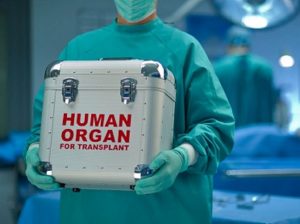The Volokh Conspiracy
Mostly law professors | Sometimes contrarian | Often libertarian | Always independent
End Kidney Deaths Act Reintroduced in Congress
While not as good as full legalization of organ markets, the act could save lives by giving kidney donors a $50,000 tax credit.

On Tuesday, GOP Rep. Nicole Malliotakis and Democratic Rep. Josh Harder reintroduced the End Kidney Deaths Act. This law would give kidney donors who donate kidneys to strangers a $50,000 "fully refundable" tax credit, and thereby incentivize organ donation. Currently, some 40,000 Americans die each year of kidney failure, for lack of available organs. Thousands more suffer for years on kidney dialysis, while waiting for organs to become available.
This terrible tragedy could be entirely eliminated simply by legalizing organ markets. The End Kidney Deaths Act stops short of that. But it would nonetheless be a major step in the right direction. I assessed its strengths and weaknesses here:
An estimated 40,000 Americans die every year for lack of kidneys available for transplant. If enacted, the End Kidney Deaths Act would save many of these people. In addition, as [Dylan] Matthews points out, the $50,000 per kidney tax credits would easily pay for themselves, because kidney dialysis is vastly more expensive, and Medicare ends up paying for most of that expense. If more people suffering from kidney failure could get a new kidney quickly, the government would save a lot money on dialysis expenses, and those people would be able to be more productive (as well as avoiding great pain and discomfort)….
The major shortcoming of the End Kidney Deaths Act is the implicit price control it creates. By setting the payment at $50,000, it prevents higher payments where that would be necessary to ensure adequate supply. While the Act would save thousands of lives, the estimates Matthews cites (some 6000 to 11,500 additional kidney donations per year) would still leave us many thousands of kidneys short, thereby still dooming many people to needless death, or at least additional years on kidney dialysis. This problem might be especially acute for patients whose genetics make it unusually difficult to find a matching donor. Conversely, if some potential donors are willing to sell for less than $50,000, there is no good reason to ban such transactions.
Full legalization of organ sales, with no price controls, would fix these problems. It's basic economics 101 that markets function best if prices are allowed to fluctuate in response to supply and demand. In a free market, insurance companies, medical care providers, and others have every incentive to pay what it takes, as the alternative of kidney dialysis is far more expensive. If necessary, the government could subsidize consumption by the poor, as it already does for kidney dialysis and many other health care expenses.
I would add that the $50,000 tax credit is stretched out over a five year period ($10,000 per year). It would be better if donors got paid immediately (thereby strengthening the incentive to donate). I make the case for full legalization of kidney sales in greater detail in this article, where I also address various objections.
Despite its weaknesses, passage of EKDA would be a big improvement over the status quo. Congress should enact it as soon as possible. Informed sources indicate to me EKDA has a good chance of passing in this Congress, because it enjoys substantial bipartisan support. I hope they are right.


Show Comments (73)